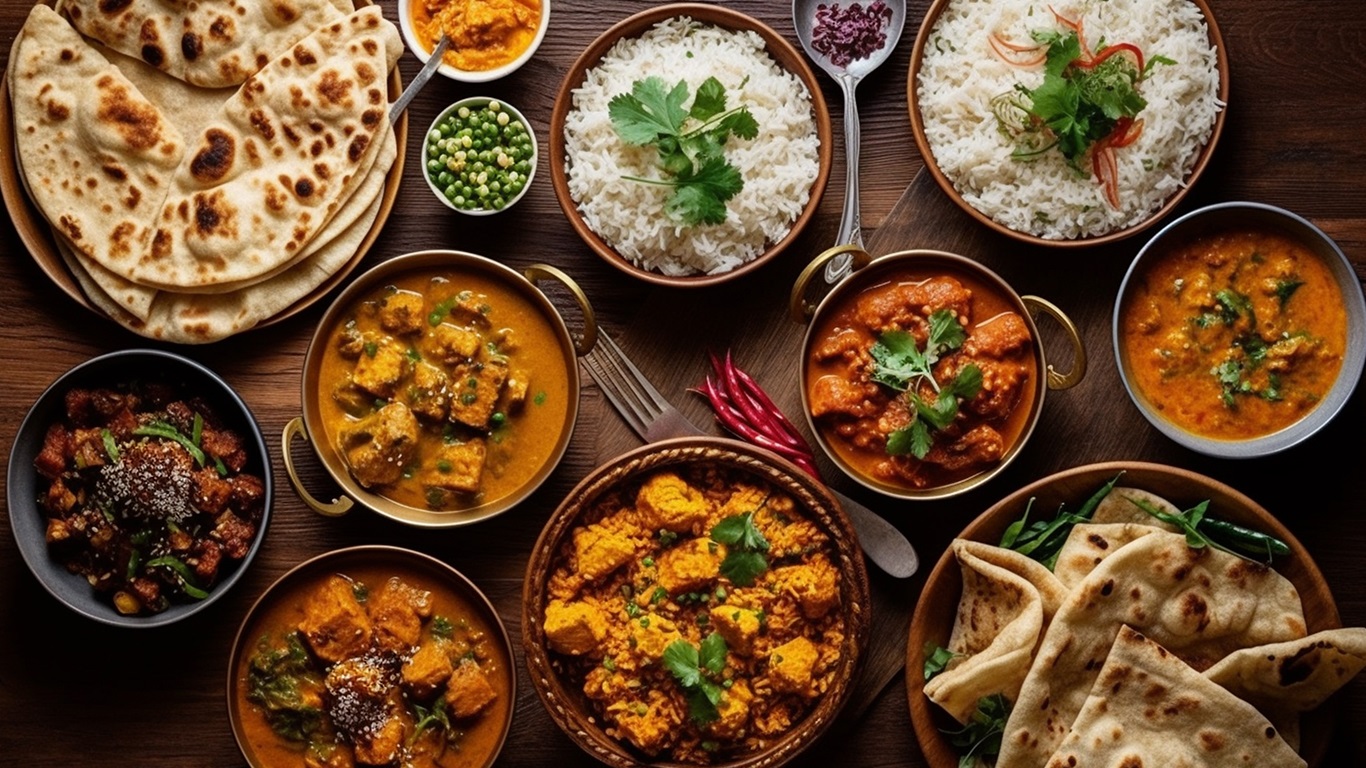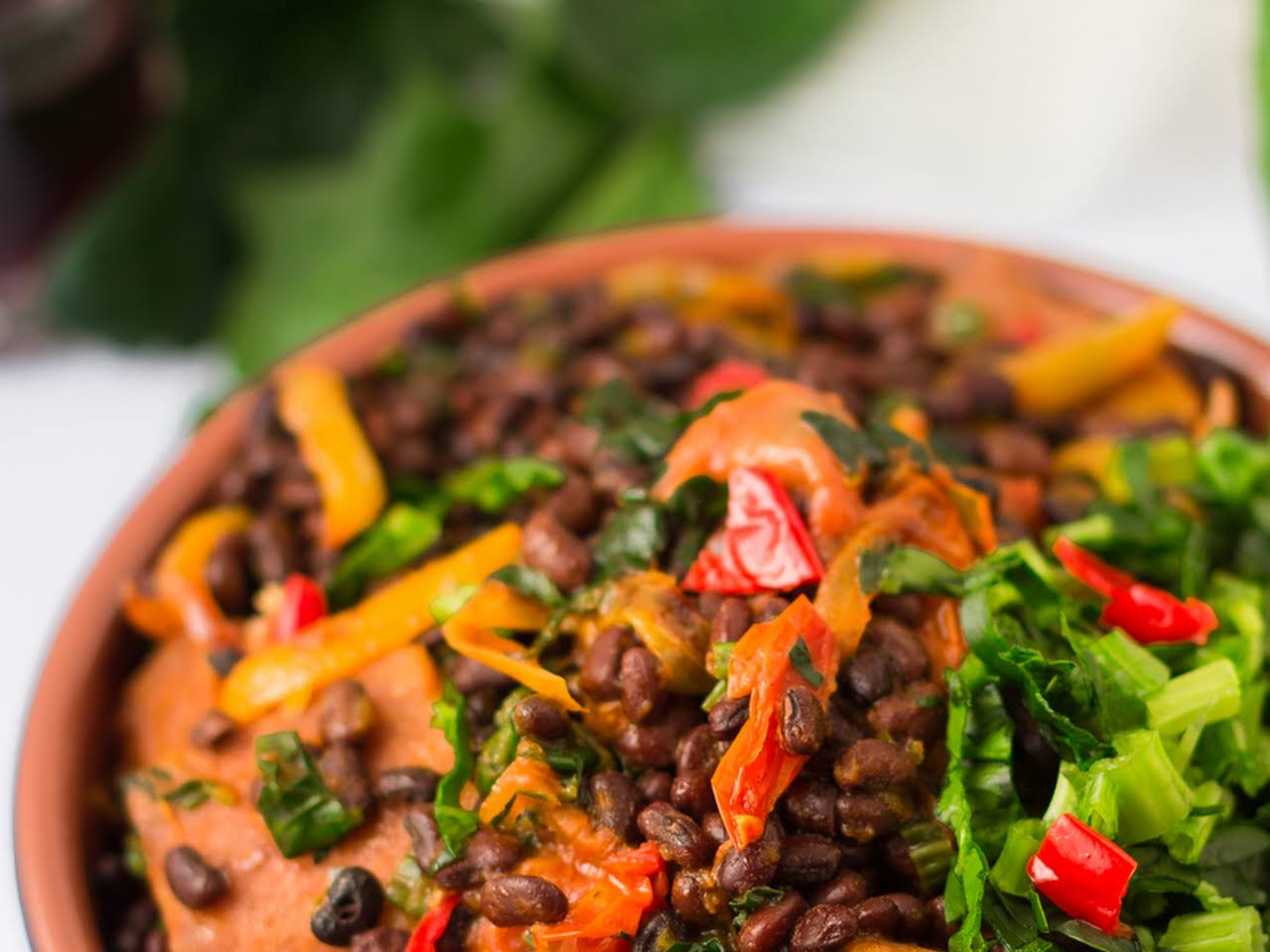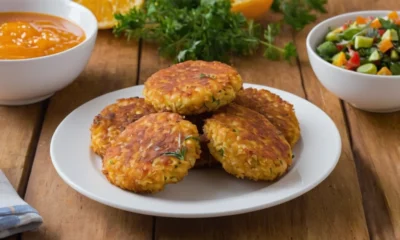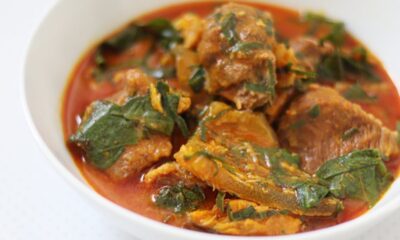FOOD
How Cultural Influences Affect Our Food Choices & Habits
Published
6 months agoon
By
wpadminee
Parents strive to instil strong cultural connections in their children, passing down cherished customs and rituals that have endured through generations. However, cultural influences on food choices often pose a complex challenge. Traditional diets, shaped by these cultural influences on food practices, may sometimes conflict with modern nutritional understanding and health recommendations.
Families must carefully examine how cultural influences on food habits impact their children’s dietary choices and overall well-being. Many traditional dishes, while rich in cultural significance, may contain excessive amounts of sugar, unhealthy fats, or refined carbohydrates.
These ingredients, deeply embedded in cultural recipes and cooking methods, can contribute to health issues such as childhood obesity, diabetes, and poor nutrition.
We can take proactive steps to preserve our cultural heritage while promoting healthier eating habits:
1. Modify traditional recipes to include more wholesome ingredients
2. Teach children the history behind cultural dishes while introducing balanced alternatives
3. Create new family traditions that celebrate both cultural identity and nutritional wellness
4. Engage children in conversations about the evolution of cultural food practices
By thoughtfully adapting our approach to cultural food traditions, we can nurture both our children’s cultural identity and their physical health, ensuring that the legacy we pass down enriches their lives in every way.
What are cultural influences?
Cultural influences are the historical, geographical, and familial factors that shape how we assess and intervene in various situations. These influences can significantly impact our perspectives, beliefs, and behaviours, ultimately affecting our decision-making processes.
What are food habits?
Food habits are more than just what you eat. They include what you eat, who you eat with, why you eat, when you eat, and how you get, store, and dispose of food. Your environment affects your food habits.
The availability and affordability of convenience foods have changed modern food habits. More parents working, rising costs of fresh food, and longer shelf life of convenience foods have shifted how we buy and eat food globally.
What is an example of a cultural influence on food choices?
For Hindus, the cow is a sacred animal. As a result, beef is not considered food in Hindu culture. Similarly, Jewish religious laws prohibit the consumption of pork and shellfish. These examples demonstrate how cultural influences affect food choices.
How Cultural Influences Affect Our Food Habits
Cultural influences on food shape what we eat, why we eat it, and who we eat with – all significant factors in our dietary habits.
As social creatures, humans have made food the centrepiece of many cultural traditions. These cultural influences on food manifest in celebrations, worship, and acknowledgements of success. Food brings people together effectively, and many cultures have transformed it into a symbol of:
- Love
- Affection
- Prosperity
- Unity
Cultural influences on food often lead many societies to equate love with the quantity of food provided. This frequently results in hosts preparing meals for far more people than actually attend. While many cultures offer nutritious food, the sheer volume served and consumed can become problematic.
One of the most challenging cultural influences on food emerges in social dining situations. People often feel pressure to eat more than they desire or typically would. Silent social expectations drive individuals to continue eating or accept food despite feeling full.
Many believe that declining food or leaving plates unfinished shows disrespect. This can lead to overconsumption as diners attempt to demonstrate respect and love to their companions.
Why does it matter?
Children learn from adults. When they see us overeat, they assume it’s normal and follow suit. Over time, this unspoken cultural practice of overeating can develop.
What can we do about it?
While culture is deeply ingrained, it can change. We can redevelop our culture and its influence on our children’s food habits. Setting food-related boundaries and learning to say “no” are crucial for developing healthier food habits.
Are you comfortable with:
- Declining more food when you’re full?
- Cooking just enough food?
- Denying your child a snack before a meal?
Practising mindfulness and learning to say “no” are key to creating a healthier and more sustainable eating culture. This takes practice. The more we practice setting food boundaries, the better we’ll become over time.
How does culture affect food?
Culture significantly shapes food, making it a crucial part of intangible cultural heritage. Through cultural influences on food, traditional recipes, cooking techniques, and dining etiquette are passed down from generation to generation.
These practices not only reflect the values and beliefs of different communities but also serve as vital components of their cultural identity. As a result, food becomes more than just sustenance; it becomes a way of life deeply embedded in cultural heritage.
How do cultural factors shape food choices?
From childhood, cultural influences on food begin to shape our dietary habits. We develop cultural values around what to eat, how to eat, which utensils to use, who we eat with, and how often meals should be taken.
Over time, these values solidify into habits, especially because they are introduced at key developmental stages. As we grow, these food-related habits become stronger, reflecting the lasting impact of culture on our daily food choices.
What are the two components of cultural food influences?
Cultural influences on food can be divided into two main components. First, different cuisines often symbolize cultural identity, with shared meals fostering social bonds and preserving traditions.
Second, the availability of specific ingredients and cooking methods is shaped by the environment, further adding to the uniqueness of culinary traditions within a culture.
Read more articles on food here.
You may like
FOOD
4 Tips For A Stress-Free Cooking Experience This Christmas
Published
4 months agoon
December 22, 2024By
wpadminee
The Christmas season is a time for joy, family, and delicious meals. However, cooking can often feel overwhelming, especially with the holiday hustle. With the right approach, cooking Christmas meals can be a stress-free experience.
Here are four practical tips for a stress-free cooking experience this Christmas.
1. Plan Ahead for Every Detail
Preparation is the key to success in the kitchen. Start by creating a detailed menu. Write down the dishes you want to make, the ingredients you need, and the estimated time for each recipe. This planning ensures you stay organised.
Invest time in grocery shopping early. Stores can be crowded closer to Christmas, so getting what you need in advance helps avoid the rush.
Batch-process tasks like peeling vegetables or marinating meat a day or two before. Following these tips for stress-free cooking keeps last-minute chaos at bay.
2. Simplify Your Menu
Christmas meals don’t need to be extravagant to be memorable. Focus on a few key dishes that everyone loves rather than a spread that leaves you exhausted. Choose recipes that are easy to prepare and don’t require constant attention.
For desserts, consider make-ahead options like pies or cookies. These can be prepared in advance, allowing you to spend more time with your guests. Simplifying your menu is one of the best tips for stress-free cooking this Christmas.
3. Use Time-Saving Tools and Techniques
Modern kitchen gadgets are lifesavers during Christmas. Slow cookers, food processors, and stand mixers can help speed up the process while reducing effort.
For large meals, use your oven efficiently. Bake multiple dishes at once if they require the same temperature. Pre-chop ingredients or buy pre-cut options to save valuable time.
Embrace these tips for stress-free cooking to make your holiday meal prep smoother and faster.
4. Delegate and Involve Others
You don’t have to do everything yourself. Share the workload with family or friends. Assign simple tasks like setting the table, washing vegetables, or stirring sauces to others.
If guests offer to bring a dish, accept their help. Potluck-style dinners reduce your cooking burden while adding variety to the table.
Delegating responsibilities is among the most effective tips for stress-free cooking, ensuring you enjoy the process too.
Cooking for Christmas doesn’t have to be a source of stress. By planning ahead, simplifying your menu, using time-saving techniques, and involving others, you can create a joyful and memorable meal.
These four tips for stress-free cooking will not only lighten your load but also let you focus on the true spirit of the season: togetherness and gratitude.
Keep these strategies in mind as you prepare your holiday feast. Merry Christmas and happy cooking!
For more reads, visit here.
FOOD
3 Delicious Recipes For Making Akidi (Black Beans)
Published
4 months agoon
December 8, 2024By
wpadminee
Akidi (black beans) recipes are a cornerstone of Enugu State’s culinary heritage, enjoyed widely across Nigeria and Africa. This versatile legume, rich in protein, fibre, and essential vitamins, makes it a nutritious staple in many homes.
Originating from Enugu, akidi holds a special place in traditional dishes, offering robust flavour and health benefits.
If you’re looking to expand your cooking repertoire, these three delicious akidi (black beans) recipes will elevate your meals.
Whether you’re an experienced chef or a kitchen novice, each akidi (black beans) recipe provides a unique taste experience.
Embrace the richness of Enugu’s culture and impress your family with these flavourful and nutritious dishes featuring the beloved black beans.
Recipe 1: Classic Akidi Soup
Ingredients:
- 1 cup dried black beans (akidi)
- 1 large onion, chopped
- 2 scotch bonnet peppers, chopped
- 2 tablespoons palm oil
- 1 teaspoon dried crayfish
- 1 teaspoon salt
- 1/2 teaspoon black pepper
- 1 stock cube
- Water
Instructions:
- Soak the beans: Rinse the black beans and soak them in water overnight.
- Cook the beans: Drain the soaked beans and add them to a pot with fresh water. Bring to a boil, then reduce heat and simmer until the beans are tender.
- Sauté the aromatics: Heat the palm oil in a separate pot. Add the chopped onion and scotch bonnet peppers, and sauté until fragrant.
- Combine the ingredients: Add the sautéed ingredients to the pot of cooked beans. Stir in the dried crayfish, salt, black pepper, and stock cube.
- Simmer and serve: Simmer the soup for an additional 10-15 minutes, or until the flavours are well combined. Serve hot.
Recipe 2: Akidi with Spinach and Plantain

Ingredients:
- 1 cup cooked black beans (akidi)
- 1 bunch spinach, chopped
- 2 ripe plantains, sliced
- 1 onion, chopped
- 2 cloves garlic, minced
- 1 teaspoon ginger, grated
- 1 teaspoon curry powder
- 1/2 teaspoon turmeric powder
- Salt to taste
- Vegetable oil
Instructions:
- Heat the vegetable oil in a pot. Add the onion, garlic, and ginger, and sauté until fragrant.
- Add the spinach: Add the chopped spinach to the pot and stir until wilted.
- Combine the ingredients: Add the cooked black beans, curry powder, and turmeric powder to the pot. Stir to combine.
- Fry the plantains: In a separate pan, fry the plantain slices until golden brown.
- Serve: Serve the akidi and spinach mixture with the fried plantains.
Recipe 3: Akidi with Smoked Fish and Vegetables

Ingredients:
- 1 cup cooked black beans (akidi)
- 1 smoked fish, crumbled
- 1 large onion, chopped
- 2 carrots, diced
- 1 green bell pepper, diced
- 1 teaspoon thyme
- 1/2 teaspoon black pepper
- Salt to taste
- Vegetable oil
Instructions:
- Heat the vegetable oil in a pot. Add the onion, carrots, and bell pepper, and sauté until softened.
- Add the beans and smoked fish: Add the cooked black beans and crumbled smoked fish to the pot. Stir to combine.
- Season and simmer: Season with thyme, black pepper, and salt. Simmer for 10-15 minutes, or until the flavours are well-combined.
- Serve: Serve the akidi with smoked fish and vegetables hot with rice, yam, or bread.
These three akidi (black beans) recipes are just a starting point. Feel free to experiment with different ingredients and flavours to create your own unique dishes.
Remember, the key to a delicious akidi dish is to use high-quality ingredients and to cook slowly to allow the flavours to develop.
Whether you’re a seasoned cook or a novice in the kitchen, these akidi (black beans) recipes are a great way to enjoy this nutritious and flavourful legume.
For more articles on food recipes, visit here.
FOOD
5 Health Benefits Of Cooking With Garlic
Published
4 months agoon
December 7, 2024By
wpadminee
Garlic is more than just a flavour enhancer; it offers numerous health benefits that have been celebrated for centuries. Incorporating garlic into your meals not only enriches the taste but also boosts your overall well-being.
Let’s explore five key health benefits of garlic, emphasising why this simple ingredient deserves a spot in your kitchen.
1. Boosts Heart Health
Garlic is renowned for its heart-protective properties. It helps lower blood pressure and reduces cholesterol levels, which are crucial factors in maintaining cardiovascular health.
Allicin, a compound found in garlic, relaxes blood vessels, improving blood flow and reducing the risk of heart disease.
Regular consumption of garlic may also prevent artery hardening, a condition known as atherosclerosis. Clearly, one of the primary health benefits of garlic is its contribution to a healthy heart.
2. Strengthens the Immune System
Garlic acts as a powerful immune booster. Its antibacterial, antiviral, and antifungal properties help the body fend off infections. Rich in antioxidants, garlic combats free radicals that can damage cells and contribute to illness.
Cooking with garlic regularly can support your immune system, making it more resilient against common colds and flu. This vital health benefit of garlic makes it a natural defence mechanism.
3. Improves Digestive Health
Garlic promotes healthy digestion by stimulating the production of digestive enzymes. Its antimicrobial properties can help balance gut flora, reducing harmful bacteria and promoting beneficial ones.
Additionally, garlic may reduce inflammation in the gut, alleviating symptoms of conditions like irritable bowel syndrome (IBS).
Including garlic in your diet can improve overall digestive function, emphasising another essential health benefit of garlic.
4. Enhances Bone Health
Surprisingly, garlic may also support strong bones. It contains minerals like calcium, manganese, and selenium, which are vital for bone density and strength.
Some studies suggest that garlic consumption can increase estrogen levels in women, potentially reducing the risk of osteoporosis.
This lesser-known health benefit of garlic highlights its role beyond the kitchen, contributing to long-term skeletal health.
5. Supports Detoxification
Garlic aids the body’s natural detoxification process by activating liver enzymes that help eliminate toxins. Its sulfur compounds enhance liver function, enabling the body to flush out heavy metals and harmful substances more efficiently.
Regularly cooking with garlic can provide a natural cleanse, supporting overall vitality. This detoxifying health benefit of garlic underscores its importance for maintaining internal balance.
Incorporating Garlic into Your Diet
Maximise these health benefits by adding garlic to soups, stir-fries, and sauces. Crush or chop it and let it sit for a few minutes before cooking to enhance its beneficial compounds.
Remember, the health benefits of garlic are most potent when it’s used fresh and minimally cooked.
Cooking with garlic not only elevates your culinary creations but also offers significant health advantages. Embrace this versatile ingredient and enjoy the multiple health benefits of garlic with every meal.
Would you like more articles or additional tips? Check here.
Latest


Samsung Galaxy S25 Series Sets The Standard Of AI Phones As A True AI Companion
Samsung Galaxy S25 series sets the standard of AI phones as a true AI companion …Pioneering the multimodal era with...


5 Things To Expect In Afrobeats In 2025
Afrobeats is poised to reach unprecedented heights in 2025 as Nigerian music continues its remarkable global ascent. The genre’s explosive...


Here Are The 7 Most Ancient Countries On Earth
The oldest countries in the world stand as remarkable testaments to human civilisation, each containing landscapes and monuments that narrate...


Why Self-Reflection Is More Important Than Resolutions
Millions of people embark on a yearly ritual: they sit down with a notebook and pen, eager to craft a...


Nollywood Director, Kemi Adetiba Teases King Of Boys 3
Nollywood director Kemi Adetiba has revealed that another instalment of King of Boys will be released on December 25, 2025....


John McEnroe Says He Can Be The Commissioner Tennis Needs Amid Doping Crisis
Recent doping controversies involving top players have not damaged tennis’s reputation, but John McEnroe believes that appointing a single commissioner...


“Everybody Loves Jenifa” Becomes Nollywood’s Highest-Grossing Film Of All Time
Nollywood filmmaker Funke Akindele has achieved a historic milestone with her latest film, “Everybody Loves Jenifa.” The film has officially...


FG To Premiere TV Series, “Hidden Riches” On Mining Sector On January 25
Nigeria’s Federal Government will launch an ambitious television drama series focused on the nation’s mining sector, premiering “Hidden Riches” on...


Qing Madi Delivers A Soulful Performance Of “Favourite Pyscho”
Rising Afro-RnB sensation Qing Madi launches into 2025 with a mesmerising performance on the prestigious COLOURS platform, showcasing her latest...


Taiwo Awoniyi’s First Goal Of The Season Seals Nottingham Forest’s Win Over Wolves
Taiwo Awoniyi made a triumphant return to Premier League action. He scored in stoppage time to help Nottingham Forest crush...
-Ad-

















